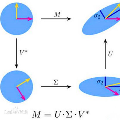The Government of Kerala had increased the frequency of supply of free food kits owing to the pandemic, however, these items were static and not indicative of the personal preferences of the consumers. This paper conducts a comparative analysis of various clustering techniques on a scaled-down version of a real-world dataset obtained through a conjoint analysis-based survey. Clustering carried out by centroid-based methods such as k means is analyzed and the results are plotted along with SVD, and finally, a conclusion is reached as to which among the two is better. Once the clusters have been formulated, commodities are also decided upon for each cluster. Also, clustering is further enhanced by reassignment, based on a specific cluster loss threshold. Thus, the most efficacious clustering technique for designing a food kit tailored to the needs of individuals is finally obtained.
翻译:由于这一大流行病,喀拉拉邦政府增加了免费食品包供应的频率,但是,这些物品是静态的,没有表明消费者的个人偏好;本文件比较分析了通过联合分析调查获得的关于缩小版真实世界数据集的各种集群技术;分析了K手段等以机器人为基础的方法的集群,并与SVD一起绘制了结果;最后,得出了两种方法中哪一种更好的结论;一旦制定了集群,每个集群也决定了商品;另外,根据具体的集群损失阈值,通过重新配置,进一步增加了集群;因此,最终获得了设计适合个人需要的食品包的最有效组合技术。


